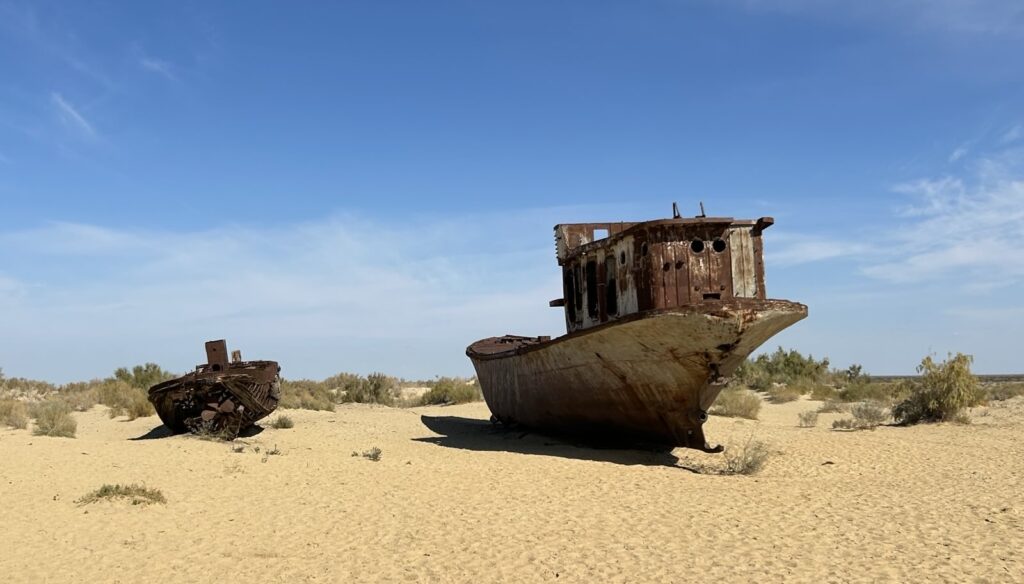The inaugural Central Asia-Italy Summit, held on May 30, 2025, in Astana, marked a significant step in international diplomacy. It established a new framework for dialogue between the European Union and Kazakhstan, Kyrgyzstan, Uzbekistan, Tajikistan, and Turkmenistan. The participation of the leaders of all five Central Asian nations alongside Italian Prime Minister Giorgia Meloni underscores the region’s growing strategic and economic relevance.
Bilateral Meetings
Ahead of the summit, extended talks took place between Kazakh President Kassym-Jomart Tokayev and Italian Prime Minister Giorgia Meloni. Tokayev emphasized the depth and stability of bilateral ties, describing Italy as a key strategic partner. Trade between the two nations grew by 24% in 2024, reaching $20 billion. Italy is Kazakhstan’s third-largest trading partner and a major investor, with approximately $7.6 billion invested over the past two decades. Over 270 Italian companies currently operate in Kazakhstan.

@akorda
Meloni praised the relationship as “exceptional,” highlighting Italy’s interest in expanding cooperation across trade, energy, and humanitarian domains. A pivotal outcome of the meeting was the signing of a Joint Statement on Strengthening Strategic Partnerships.

@akorda
Additional agreements included:
- Security and Migration – Readmission agreement;
- Resources and Critical Materials – Cooperation on strategic mineral extraction;
- Investment and Industrial Development – Agreements involving Samruk-Kazyna, Maire Tecnimont, and Ansaldo;
- Water Management and Ecology – Memorandum with the Italian engineering association OICE;
- Finance and Project Lending – Agreements with Cassa Depositi e Prestiti and SACE SpA;
- Energy and Exports – Agreements with Samruk-Energo and Kazakh Invest.
President Tokayev also met with Turkmen President Serdar Berdimuhamedov, emphasizing cultural and economic ties and expressing hope for the realization of joint projects.

@akorda
Kazakhstan’s Proposals
Tokayev outlined proposals for expanding economic, technological, and humanitarian cooperation with Italy. He called for the development of logistics infrastructure and proposed establishing an Italian trading house in Almaty and launching the “Businessmen Plus Italy” platform.
Tokayev highlighted Kazakhstan’s readiness to boost oil exports, already over 30 million tons in 2023, a 27% increase from the previous year, and expand exports of over 100 goods valued at $1 billion, particularly non-resource items. He also proposed increased cooperation in agro-industry and emphasized aligning certification standards with the EU.
Kazakhstan invited Italian firms to participate in rare earth exploration under a model of “investment and technology in exchange for strategic raw materials.” Joint ventures in textiles, furniture, pharmaceuticals, and machinery were also encouraged.
Tokayev stressed decarbonization as a national priority and praised Italian investments in renewable energy. He proposed collaboration on green hydrogen and ammonia production and urged Italy to engage with the Global Biofuels Alliance.

@akorda
In education and research, Tokayev invited Italian technical universities to open branches in Kazakhstan, noting that 4,000 Kazakhstani students currently study in Italy. He proposed joint efforts in AI and innovation, including participation in the new Central Asia-EU Innovation Campus at the Astana Hub.
Transport infrastructure also featured prominently. Tokayev advocated for integrating the Trans-Caspian International Transport Route (TMTR) with the EU’s Global Gateway, calling it a modern Silk Road. Container traffic on the Kazakh section rose by 62% in 2023 to 4.5 million tons, with plans to double that figure within three years.
He also proposed declaring 2026 the Year of Cultural Rapprochement between Central Asia and Italy, with a series of humanitarian events to foster intercultural dialogue.
Pragmatic Multilevel Diplomacy
The summit reflects a broader geopolitical trend: increased competition among global powers – China, Russia, Turkey, the EU, and the U.S., for influence in Central Asia. Italy’s non-confrontational, economically pragmatic stance makes it an appealing partner for the region.
A joint declaration reaffirmed commitments to political dialogue and cooperation in infrastructure, logistics, energy, and high technology. The parties pledged to support SME-focused investment projects and emphasized green energy and critical raw materials.

@akorda
Key outcomes also included support for TMTR as a sustainable multimodal corridor and commitments to water security, climate action, and environmental projects, including pilot initiatives to restore the Aral Sea. Roundtables on water and energy are planned for 2026-2027.
Meloni expressed support for regional tech and education initiatives, including youth exchanges, vocational training, and joint scientific programs.
Kyrgyzstan offered to host the next summit in 2027, while Italy will hold the fourth Foreign Ministers’ Conference in spring 2026.

@akorda
This new summit format mirrors others such as the U.S. C5+1 and Central Asia-Germany platforms, reflecting the region’s desire for structured engagement with external partners. Ultimately, Central Asia’s ability to act cohesively will determine the success of such initiatives.
The Central Asia-Italy Summit affirmed the region’s growing diplomatic maturity and Italy’s role as a constructive European partner. Amid rising global fragmentation, these forums offer valuable mechanisms for promoting balance, modernization, and sustainable development.









